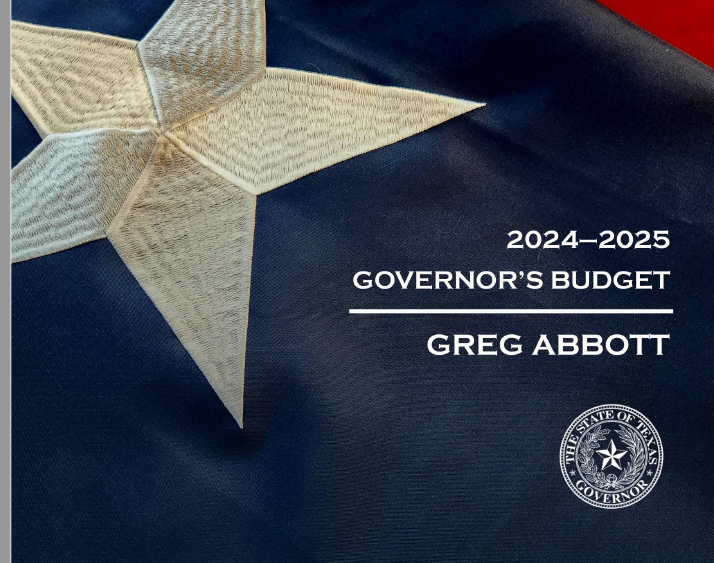
Governor Abbott offered three recommendations for Texas property tax relief to the 88th Legislation in the 2024-2025 Budget based on the state’s $15 billion dollar surplus. See the published budget here.
With a growth of 1.6% in 2022 Texas’ population grew at an average rate of over 1,300 people per day. This dried up the housing supply, created more demand for services, goods & supplies, and significantly increased rent and sale prices in nearly every market. With increases in property tax values and the anticipation of surplus tax revenue, many jurisdictions adopted lowering tax rates, helping to offset a small portion of the taxpayer burden. Still, except for homesteaded properties, some property owners experienced property tax liability increases of more than 50% over the last two years. The tax levied on homesteaded properties can only increase by 10% maximum each year.
How will Governor Abbott’s recommendations be received, and what language in the final bill, if any, will help homeowners and businesses throughout the state? Let’s look at his recommendations.
In theory, compressed tax rates sound great, but the language from 2019 Legislation only limited the share of property tax revenue specific to the maintenance & operations budget of certain school districts. In doing so, it only realized a 12% limitation in the overall ISD rate. For commercial property owners, this would have resulted in a tax liability reduction of $25,000 per million of value to $23,800 per million of value using a starting tax rate of 2.5%. The problem is that commercial property, which was assessed at $1,000,000 in 2020 is now likely assessed around $1,500,000 in major markets, resulting in today’s tax liability of $35,700, using the reduced rate of 2.38%. How do you think a commercial property owner would respond if asked about the property tax relief they experienced? Generally speaking, jurisdictional tax rates only decrease when the potential revenue from taxable property values exceeds the adopted budgetary needs. If property tax values are low, and the jurisdictions need more money to operate, tax rates will increase. I liken this compression mechanism to a sale at Kohl’s. There’s a 50% markdown, but their sale price item is the same price as a competitor’s full price item. Are we getting a good deal, or does it just look like we are?
2. I also recommend senior citizens should be automatically enrolled in the additional $10,000 homestead exemption on school property taxes, and their county property taxes should be frozen.
This is a no-brainer. Do it! With 13.1% of Texas’ population being 65 or older and the homeownership rate being 61.9%, that puts the over-65 homeownership rate at 8.1%. This doesn’t even consider alternative living situations like senior living facilities or seniors living with relatives. Passing this into law would make a big difference to fixed-income seniors but wouldn’t create a big burden while doing so. Texas generated 73.5B in property tax revenue, 49% (36B) of which comes from residential properties. Of that, a maximum 2.9B comes from over-65 residential properties using the assumptions above. I bill like this wouldn’t lower the current tax collected from over-65 homesteaded properties but prevent limited increases collected from this demographic. In my estimation, this would translate to annual property tax relief between 500-800 million.
3. Furthermore, I recommend small businesses be provided targeted relief with an increased exemption for business personal property.
Sec. 11.145 of the Texas Tax Code states: INCOME-PRODUCING TANGIBLE PERSONAL PROPERTY HAVING VALUE OF LESS THAN $2,500. (a) A person is entitled to an exemption from taxation of the tangible personal property the person owns that is held or used for the production of income if that property has a taxable value of less than $2,500. As it stands, this saves a (very small) business owner $62.50 using an average tax rate of 2.5%. Not providing this exemption would likely cost the appraisal districts and tax collectors more money from an administration/postage standpoint. An increase to this threshold minimum is welcomed and would probably not amount to much in way of property tax relief relative to the $15B state surplus.